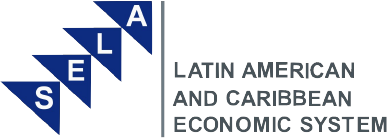introduction
Digital technologies have transformed the economic and social life of humanity. Business models, labour markets, the media and government action have undergone drastic changes driven by advances in digitization, to such an extent that quality access to connectivity networks is decisive to secure the most essential services and enjoy the benefits of the development process.
These technologies have enormous potential to foster greater social inclusion and drive economic growth. Their widespread use, especially the mass access to the Internet, has been an enabling factor for the emergence of new productive sectors, the significant reduction in transaction costs and the creation of conditions for greater citizen participation in its relationship with the State.
With the emergence of the COVID-19 pandemic, their benefits have been even more evident, facilitating capacity building to reduce the spread of the virus and contain its economic and social costs. However, despite all advances in access and quality of connectivity, the current juncture has also exposed the huge digital gaps that prevent a significant portion of the world population from inserting into the new normality of telework and tele-education.
World Bank figures show that only 40% of the global population has access to the Internet, just 20% have high-speed broadband connection and just over 27% do not have a cell phone. The picture is even less encouraging for lower-income households, where more than 71% lack access to the Internet and 21% do not have access to a mobile phone.
In the context of Latin America and the Caribbean, CAF statistics (2020) show that 32% of the population does not have access to the Internet. In this connection, ECLAC figures report greater impact in rural areas, where 77% of households are offline, while in urban areas this proportion is reduced to 23%. In addition, IICA, IDB and Microsoft (2020) point out that only half of countries in the region have a digitization agenda and 67% of schools do not have sufficient connection speed.
Based on this pattern of access to digitization, the effects of technology on productivity, on the generation of better opportunities for overcoming poverty and on political stability have been less than expected. Gaps have eroded the digital dividends of lower-income populations located in remote areas.
In the particular case of rural areas, improving access to connectivity networks can lead to significant changes in the living standards of its inhabitants, allowing progress in productivity, greater provision of social services, increases in public sector capacities, and higher quality jobs.
To materialize all the benefits of digitization, the region must face a wide range of challenges, including: a) extending access to affordable and quality connecting platforms with greater deployment of infrastructure; b) updating policy frameworks to boost digital economy development; c) accelerating the implementation of digital agendas; and d) promoting training in digital skills for the intensive use of tools.
The future will be more digital, even more so after the pandemic. In view of this situation, countries in the region must activate international cooperation mechanisms, regional integration and public-private collaboration as platforms for building joint strategies and learning successful practices. This meeting is a contribution in this direction.
Objectives
This virtual activity aims to:
- Analyse the main challenges for a meaningful rural digital connectivity in Latin American and Caribbean countries
- Present regional strategies to promote rural digital connectivity within countries' development agendas
- Generate a regional dialogue platform to promote cooperation in rural digital connectivity projects.
Information
Date: Thursday 25 March 2021
Time: Caracas 10.00 AM
Connection: Zoom
Registration form: https://bit.ly/3qlqIDk
Agenda
| 10:00-10:10 |
Opening session
|
| 10:10 – 11:20 |
Overview of rural digital connectivity in Latin America and the Caribbean Panel of experts (15 min each) Moderator: Sebastián Rovira, Economic Affairs Officer, Productive Development Division at Economic Commission for Latin America and the Caribbean (ECLAC)
|
| 11:20 – 12:15 |
Round table on rural digital connectivity (10 min each) Moderator: Ambassador Oscar Hernández, Director of Relations for Cooperation and Integration, Permanent Secretariat of the Latin American and Caribbean Economic System (SELA)
|
(*) To be confirmed
References
CAF. (2020, April 3). El estado de la digitalización de América Latina frente a la pandemia del COVID-19. Caracas: CAF. Available at: https:// scioteca.caf.com/handle/123456789/1540
CEPAL (Comisión Económica para América Latina y el Caribe) (2020) Universalizar el acceso a las tecnologías digitales para enfrentar los efectos del COVID- 19. Available at: https:// www.cepal.org/es/publicaciones/45938-universalizar-acceso-tecnologias-digitales-enfrentar-efectos-covid-19
CEPAL (2019). Tendencias recientes de la población de América Latina y el Caribe. Santiago de Chile, CELADE. https://dds.cepal.org/redesoc/publicacion?id=5036
CEPAL (Comisión Económica para América Latina y el Caribe) (2018). Una mirada regional al acceso y tenencia de tecnologías de la información y comunicaciones – TIC, a partir de los censos. Available at: https://www.cepal.org
IICA, BID and Microsoft (2020). Conectividad rural en América Latina y el Caribe: Un puente al desarrollo sostenible en tiempos de pandemia. Available at: https://www.iica.int/
